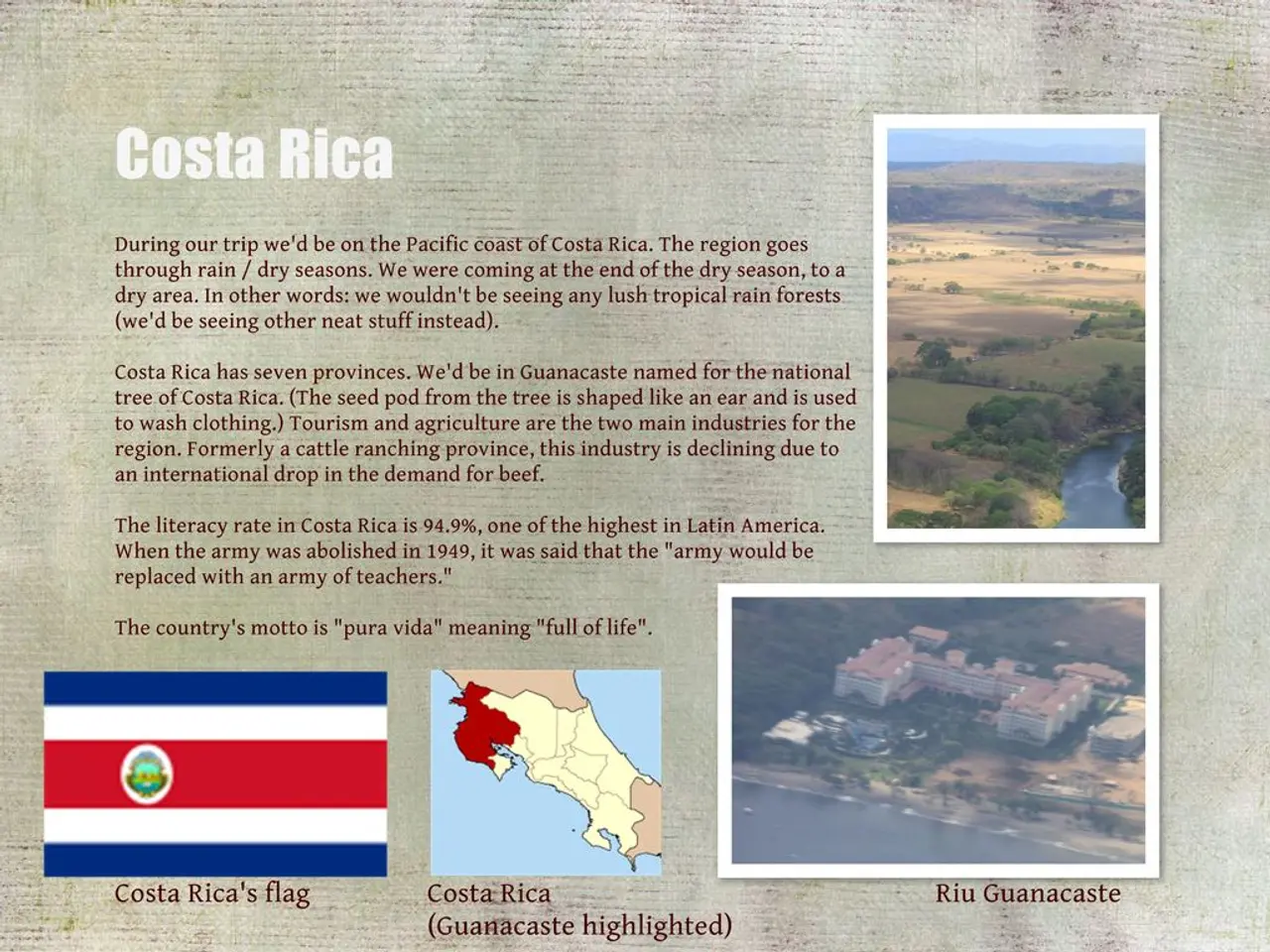Adequate Loudness from Bill, Consistent Approach - Latest Dividend Income Report
Swapping my 9-5 in 2016 for a life of adventure, I took a sabbatical, packed my family into a tiny RV, and hit the road to sunny Costa Rica.
When I returned in 2017, I said goodbye to the finance world, quitting my job as a private banker at National.
This wild move brought its own set of perks and obstacles.
First off, living in an RV lets you traverse the land like a nomad, making your own choices about where to go and when. Say goodbye to hotel bookings and strict schedules! Costa Rica's diverse landscapes and laid-back vibe make it the perfect destination for such a lifestyle (citation needed).
But it's not just about independence—being close to nature is a huge bonus. Picture yourself waking up in the heart of a tropical jungle, surrounded by exotic wildlife. When you're living in an RV, that dream can become your reality (citation needed).
Cutting costs is another sweet side effect. Compared to the expenses of traditional living or buying property in Costa Rica, RV living can be a budget-friendly choice. Plus, it saves on shelling out for hotels or vacation rentals (citation needed).
Simplifying life was another big draw. Stepping away from the heavy responsibilities of high-powered banking roles, I could focus on experiences instead of possessions (citation needed).
Of course, it's not all smooth sailing. Dealing with Costa Rica's bureaucracy can be a headache, with long waits for permits or documentation (citation needed). Navigating legalities around visas, vehicle registration, and camping permissions can also be tricky (citation needed).
Living conditions and climate can be a challenge, too—Costa Rica’s wet, tropical environment can lead to mold problems (citation needed). And being continually on the move or living in remote areas might leave you feeling lonely and struggling to make lasting connections (citation needed).
Working remotely adds another layer of complexity. Maintaining internet connectivity can be tough in less-developed areas, and balancing work and leisure can be a challenge (citation needed). Safety and security also become concerns, as you'll need to take extra precautions when traveling or parking your RV (citation needed).
Managing international finances is another task, especially for someone used to the structured world of banking (citation needed). And remember, with freedom comes responsibility—it's up to you to stay on top of banking, taxes, and any unexpected costs (citation needed).
So, is life on the road in Costa Rica the right move for an ex-private banker? It's a trade-off—you get freedom, a close connection to nature, and cost savings, but you'll have to contend with bureaucracy, environmental challenges, social isolation, and logistical demands related to technology, security, and finance. But hey, sometimes a little adventure is worth the effort!
After leaving my corporate career as a private banker, I discovered that RV living in Costa Rica offers a budget-friendly alternative to traditional housing, allowing me to focus on experiences rather than possessions. However, this lifestyle comes with its own set of challenges such as dealing with Costa Rica's bureaucracy, navigating legalities, managing international finances, and maintaining internet connectivity.
Transitioning from a career in finance to a nomadic lifestyle, I also found that being close to nature and the opportunity for travel were significant benefits. Yet, living in an RV can present difficulties like mold problems due to the wet, tropical environment, social isolation, and the need for safety and security precautions when traveling or parking.
While simplifying life and financial responsibilities can be appealing, ex-bankers need to be aware of the logistical demands related to technology, communications, and legalities that come with living and working on the road in Costa Rica. Ultimately, choosing this lifestyle comes down to weighing the freedom, cost savings, and close connection to nature against the challenges of dealing with bureaucracy, environmental issues, and maintaining a secure remote work setup.






